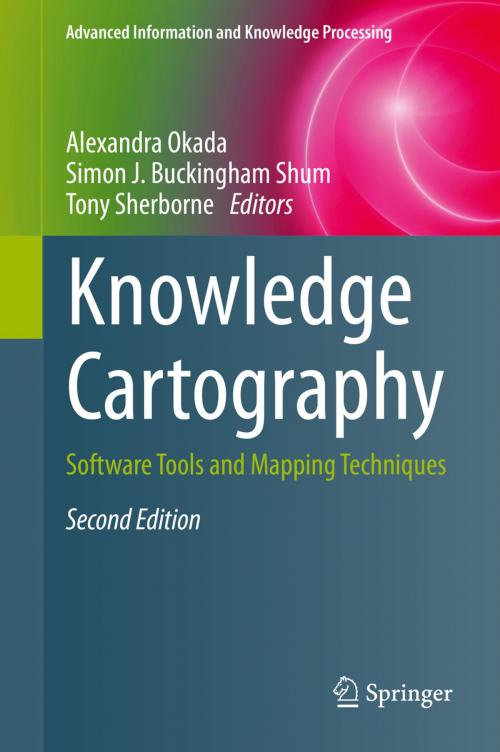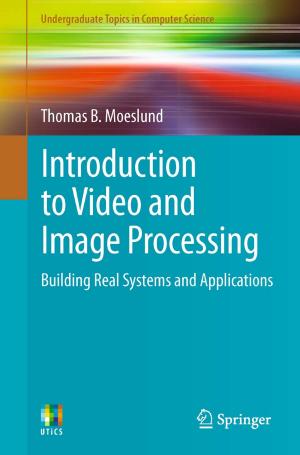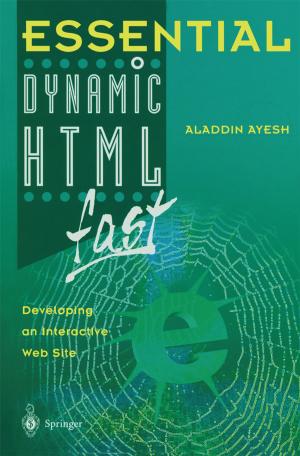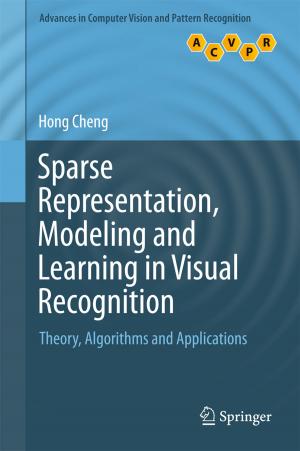Knowledge Cartography
Software Tools and Mapping Techniques
Nonfiction, Computers, Advanced Computing, Programming, User Interfaces, Reference & Language, Education & Teaching, Teaching, Computers & Technology, General Computing| Author: | ISBN: | 9781447164708 | |
| Publisher: | Springer London | Publication: | October 7, 2014 |
| Imprint: | Springer | Language: | English |
| Author: | |
| ISBN: | 9781447164708 |
| Publisher: | Springer London |
| Publication: | October 7, 2014 |
| Imprint: | Springer |
| Language: | English |
Focuses on the process by which manually crafting interactive, hypertextual maps clarifies one’s own understanding, communicates it to others, and enables collective intelligence. The authors see mapping software as visual tools for reading and writing in a networked age. In an information ocean, the challenge is to find meaningful patterns around which we can weave plausible narratives. Maps of concepts, discussions and arguments make the connections between ideas tangible - and critically, disputable. With 22 chapters from leading researchers and practitioners (5 of them new for this edition), the reader will find the current state-of-the-art in the field. Part 1 focuses on knowledge maps for learning and teaching in schools and universities, before Part 2 turns to knowledge maps for information analysis and knowledge management in professional communities, but with many cross-cutting themes: · reflective practitioners documenting the most effective ways to map · conceptual frameworks for evaluating representations · real world case studies showing added value for professionals · more experimental case studies from research and education · visual languages, many of which work on both paper and with software · knowledge cartography software, much of it freely available and open source · visit the companion website for extra resources: books.kmi.open.ac.uk/knowledge-cartography Knowledge Cartography will be of interest to learners, educators, and researchers in all disciplines, as well as policy analysts, scenario planners, knowledge managers and team facilitators. Practitioners will find new perspectives and tools to expand their repertoire, while researchers will find rich enough conceptual grounding for further scholarship.
Focuses on the process by which manually crafting interactive, hypertextual maps clarifies one’s own understanding, communicates it to others, and enables collective intelligence. The authors see mapping software as visual tools for reading and writing in a networked age. In an information ocean, the challenge is to find meaningful patterns around which we can weave plausible narratives. Maps of concepts, discussions and arguments make the connections between ideas tangible - and critically, disputable. With 22 chapters from leading researchers and practitioners (5 of them new for this edition), the reader will find the current state-of-the-art in the field. Part 1 focuses on knowledge maps for learning and teaching in schools and universities, before Part 2 turns to knowledge maps for information analysis and knowledge management in professional communities, but with many cross-cutting themes: · reflective practitioners documenting the most effective ways to map · conceptual frameworks for evaluating representations · real world case studies showing added value for professionals · more experimental case studies from research and education · visual languages, many of which work on both paper and with software · knowledge cartography software, much of it freely available and open source · visit the companion website for extra resources: books.kmi.open.ac.uk/knowledge-cartography Knowledge Cartography will be of interest to learners, educators, and researchers in all disciplines, as well as policy analysts, scenario planners, knowledge managers and team facilitators. Practitioners will find new perspectives and tools to expand their repertoire, while researchers will find rich enough conceptual grounding for further scholarship.















